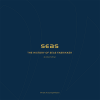Shakespeare Survey: Volume 43, The Tempest and After
Shakespeare Survey is a yearbook of Shakespeare studies and production. Since 1948 Survey has published the best international scholarship in English and many of its essays have become classics of Shakespeare criticism. Each volume is devoted to a theme, or play, or group of plays; each also contains a section of reviews of the previous year’s textual and critical studies and of major British performances. The books are illustrated with a variety of Shakespearean images and production photographs. The current editor of Survey is Peter Holland. The first eighteen volumes were edited by Allardyce Nicoll, numbers 19-33 by Kenneth Muir and numbers 34-52 by Stanley Wells. The virtues of accessible scholarship and a keen interest in performance, from Shakespeare’s time to our own, have characterised the journal from the start. For the first time, numbers 1-50 are being reissued in paperback, available separately and as a set.
• Most volumes of Survey have long been out of print in hardback. This is the first time we have published in paperback • Each volume is devoted to the year’s theme • Each volume contains reviews of critical books and theatre performances
Contents1. The power of magic: from Endimion to The Tempest Kurt Tetzeli Von Rosador; 2. Reading The Tempest Russ MacDonald; 3. The latter end of Prospero’s commonwealth James Black; 4. Henry VIII and the deconstruction of history Peter L. Rudnytsky; 5. The politics of conscience in all is true or Henry VIII Camille Wells Slights; 6. Shakespeare’s romantic innocents and the misappropriation of the romantic past: the case of the two noble kinsmen Richard Hillman; 7. The hand of John Fletcher in double falsehood Stephan Kukowski; 8. ‘The Duke My Father’s Wrack’: the innocence of the restoration Tempest Matthew H. Wikander; 9. ‘Remember/First to possess his books’: The appropriation of The Tempest 1700–1800 Michael Dobson; 10. The Tempest and after Inga-stina Ewbank; 11. Poetry’s sea-changes: Eliot and The Tempest Martin Scofield; 12. The new function of language in Shakespeare’s pericles: oath versus ‘Holy Word’ Elena Glasov-Corrigan; 13. The discovery of the Rose Theatre: some implications R. A. Foakes; 14. The origins of the Roxana and Messallina illustrations John H. Astington; 15. Recycling the early histories: ‘The Wars of the Roses’ and ‘The Plantagenets’ Lois Potter; 16. Shakespeare production in England in 1989 Stanley Wells; 17. Professional Shakespeare productions in the British Isles, January-December 1988 complied by N. Rathbone; 18. The year’s contributions to Shakespeare ctudies; 19. Critical studies reviewed by R. S. White; 20. Shakespeare’s life, times and stage reviewed by Richard Dutton; 21. Editions and textual studies reviewed by MacDonald P. Jackson.
- Forlag: Cambridge University Press
- Utgivelsesår: 1991
- Kategori: Teori
- Lagerstatus: Ikke på lagerVarsle meg når denne kommer på lager
- Antall sider: 291
- ISBN: 9780521395298
- Innbinding: Innbundet















